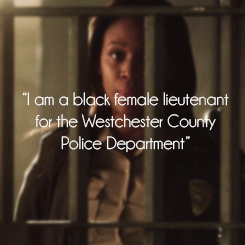In the case of Sleepy Hollow, it begins with the premise for the show and the constraints that their paranormal concept put on the development of a long running PPP series. Brief concept synopsis: A Sleepy Hollow Sheriff, Abigail Mills, meets Ichabod Crane who has woken up 200 years after the American Revolution.
They are the witnesses of God to prevent the coming apocalypse and the headless horseman that Ichabod fought 200 years ago was one of those horsemen one of the harbingers of Moloch who wants to bring the dead into the world of the living and create chaos.In general, this means that they draw from Judeo-Christian biblical lore and to a certain degree pre-Judeo-Christian monotheism myths. That’s the realm they are working from with a bit of American folklore, the headless horseman and Salem witches, mixed in to rationalized why the hell this would happen in the Northeast of America and not somewhere with exponentially more historical, archaeological, ancient depth. This sounds a bit absurd but also awesome. Two witnesses, one an awesome Black Woman Cop and the other an upper class White Dude actually from the 1700s, have to stop the apocalypse. Also cool: underground revolutionary tunnels, archives, flashbacks to the revolution, and hilarious problems about dealing with modern technology.
Problem: Where do you go from there?
In my mind, the show would have run 4 seasons (or up to 7 depending on how deep you went into the biblical stuff). One year for each of the horsemen, or harbingers, and then ended with some sort of awesome epic thing. You create your world around this struggle and the impending apocalypse and each year raise the stakes as something goes just a bit wrong even as people are working together to stop it from happening and you stay within the realm of Judeo-Christian-American-Folklore.
Problem: That’s not what they did.
Within 1.5 seasons, Moloch and all his horsemen are defeated, and instead of weekly investigations of murders related to these horsemen and the impending apocalypse, the show is devolving slowly in season three into borderline random paranormal villains killing people. There technically is an overarching story and villain but those are shakily related. Additionally, Abby went from a local Sheriff to an FBI Agent making it exponentially harder to explain why the hell Crane is around all the time and can solve all the murders.
Basically, seasons 2-3 expands Sleepy Hollow’s paranormal world outside their American-folklore-centric- Judeo-Christian premise to encompass all myths from all times and all cultures. The villain switches from Moloch to Pandora, a character from Greek mythology and generally unrelated to monotheistic beliefs, and her minions who range from Chinese to Caribbean demons. Essentially, Sleepy Hollow broke their own internal paranormal logic opening the show up for questions such as “Why didn’t Pandora and Moloch team up to defeat the witnesses”. Good Question. Because when the show started Pandora wasn’t an idea in the minds of the showrunners, that’s why.
This sort of borrowing without world-building is what is slowly eroding this show. While it builds on the strong and enduring idea of a police procedural, its paranormal support has hindered the development of the world of the show which, at least in the beginning, seemed to have a great foundation of concepts and ideas.

